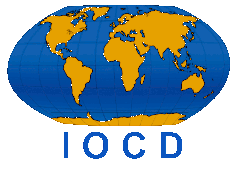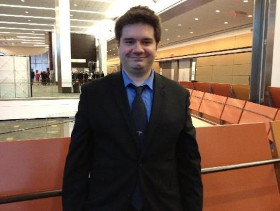
International Organization for Chemical Sciences in Development

International Organization for Chemical Sciences in Development
The existing global infrastructure for power generation and delivery is largely entrenched in a paradigm of centralized production in power plants, with delivery to customers through a network of transmission lines and transformers. While this model is reliably implemented in most developed nations, low- and medium-income countries (LMICs) often lack reliable electricity delivery services. The reasons for this often relate to a lack of local fossil fuel supplies, and a dependence on costly fuel imports that keep electricity prices high and prevent a critical mass of consumers necessary to implement delivery infrastructure. The International Energy Agency (IEA) estimates that 1.3 billion people lack basic electricity and that 2.7 billion still rely on burning biomass to cook their food [1]. On the other hand, access to energy, specifically clean alternative energies, is not considered a prerequisite for any type of development; in addition, enabling energy access in LMICs has the potential to address directly or indirectly all the Millennium Development Goals (MDGs).
Recent materials- and process-driven advances have led to a considerable maturation, and significant price drops, in technologies for harvesting and storing energy from renewable sources. In contrast to fossil fuels, the geographic distribution of renewable energy resources (sunlight, wind) favors many LMICs. Advanced technologies that capitalize on these resources are key to enabling energy self-sufficiency in regions not currently served by reliable large-scale power infrastructure. These renewable energy sources have the additional benefit of being highly scalable: they are cost-efficient even in very small implementations, which makes them amenable to use in local-scale distributed electrical systems.
The need for growth in this sector is pressing. The 2011 edition of the IEA's World Energy Outlook estimates that to meet the goal of universal access to electricity by 2030, at least 55% of new electricity generation should be local-scale (isolated off-grid or part of a local energy grid.) [1]. Since renewable energy sources lack the constancy of traditional fossil-fuel power generation, energy storage (batteries, etc.) is a critical aspect of local-scale energy production. Finally, it is essential to develop advanced materials that minimize energy consumption in everyday processes, such as diode-based light bulbs or high-efficiency building insulation.
The Working Group (WG) Materials for Energy Conversion, Saving and Storage (MATECSS), formed in 2013, has two objectives. First, it aims to expedite technology transfer in the areas defined by MATECSS by connecting experts from around the world with local scientists, engineers and students in LMICs. This process will involve working with locals to identify specific needs in targeted regions.
In a second subsequent phase, an internet-based platform will be used to create a flow of knowledge and know-how to the local stakeholders. This virtual interface will be supported with face-to-face meetings in the form of on-site short courses and regional workshops or symposia aimed at defining specific and concrete actions as a follow up on the virtual platform.
The second goal of the WG is to foster the development of low cost, adaptive technologies [2] based on materials for energy conversion, saving and storage that fit within the paradigm of local-scale energy systems and that use local resources. For example, a recent meeting of the African Materials Research Society highlighted the potential for fabricating dye-sensitized solar cells using dyes extracted from papaya leaves [3].
To address these challenges and attain these objectives, the WG will adopt the following approach:
The Group is co-chaired by Federico Rosei and Mohamed Chaker, Professors and Canada Research Chairs holders at the Centre Énergie Matériaux Télécommunications at the Institut National de la Recherche Scientifique (INRS), Montreal.


Profs. Rosei (left) and Chaker (right) co-Chair the IOCD Working Group on Materials for Energy Conversion, Saving and Storage (MATECSS).
Prof. Federico Rosei has been the recipient of numerous awards for his work. These include:
⤒ Top
Organisation Internationale des Sciences Chimiques pour le Développement
61 Rue de Bruxelles
B 5000 Namur, Belgium
Quick links:
home
site map
support
contact us
legal notice